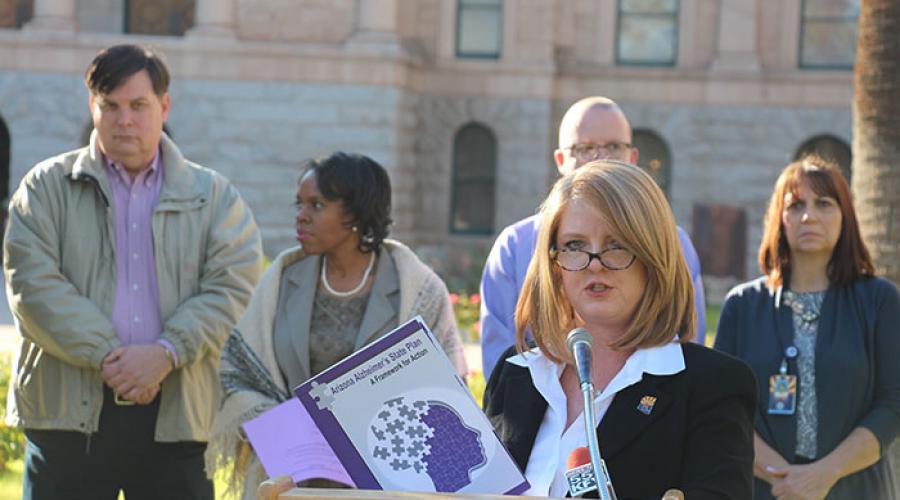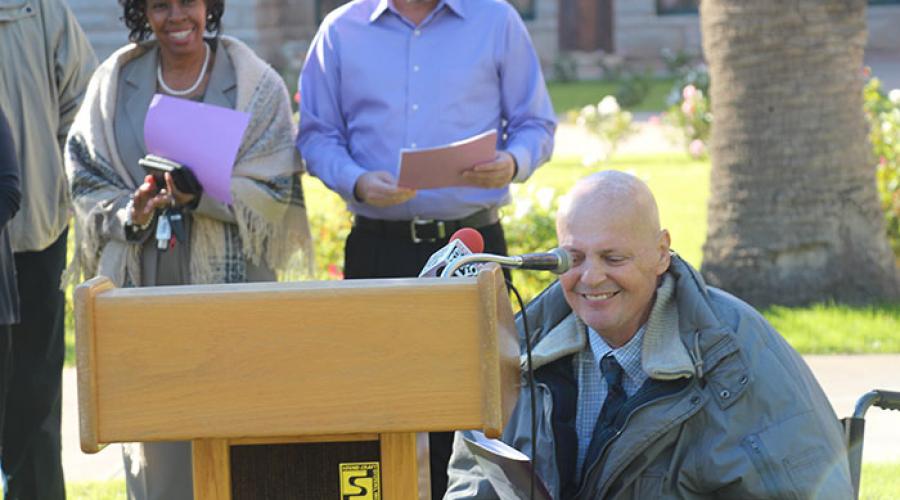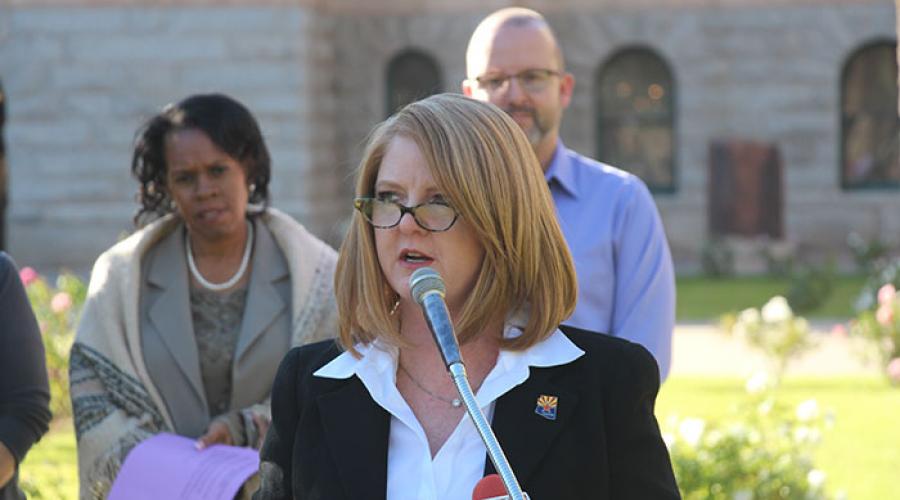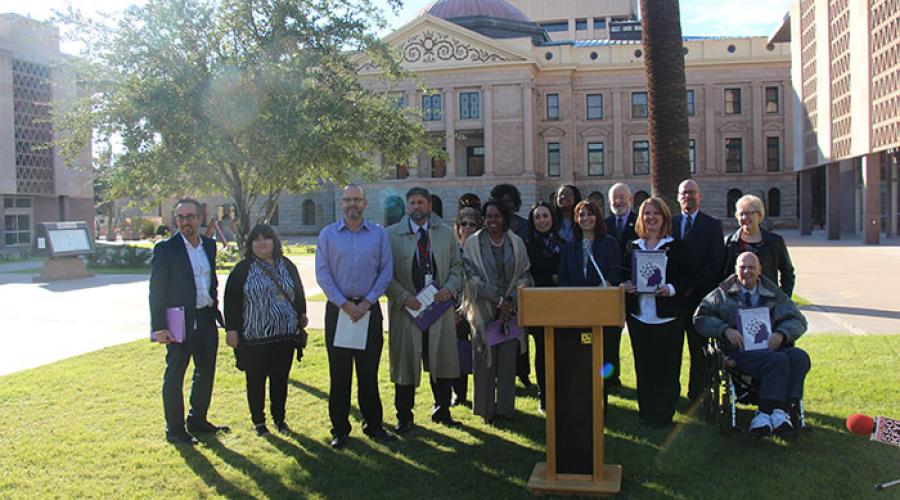Arizona Alzheimer's State Plan Unveiled at State Capitol
Alzheimer's disease is the most common form of dementia, and is now the fourth leading cause of death in Arizona, the top leading cause for women age 65 and older. As our state is a haven for retirees, the population of those 65 and older is expected to increase by 174% from 2010 to 2050. The Arizona Alzheimer's Task Force was formed to address the growing human and financial cost of this disease, and other forms of dementia.
In an address on the Arizona State Capitol lawn, representatives from the Arizona Alzheimer's Task Force, the Governor's Advisory Council on Aging, members of the State Legislature, and the Department of Economic Security (DES) outlined the new Arizona Alzheimer's State Plan: A Framework for Action, part of a nationwide effort of states to develop a plan to support those who are suffering from dementia, and their families who care for them.
The plan has five main goals: to maximize public awareness and understanding; develop new and enhanced existing supports for Alzheimer's patients and their families; expand a dementia-capable workforce in Arizona; advance and disseminate research; and create a dementia-capable system in our state.
The efforts to find a cure and support caregivers is personal to DES Division of Aging and Adult Services Caregiver Coordinator David Besst who shared his personal experience. His mother died of Alzheimer's and the mother of his significant other also suffers from the disease, and is living in a care facility.
"Alzheimer's is a very personal process, it's tough when somebody you loved for 50 years wants to punch you in the nose and doesn't know who you are," said Besst. "It's really, really tough. It's one of the hardest forms of caregiving you can do."
Arizona State Representative Bob Robson-who lost his mother to the disease-and State Representative Heather Carter pledged to continue to work with the Arizona State Legislature and Governor Ducey's office to support research funding. Representative Carter is the Chair for the House Committee on Health and a member of the Task Force. She voiced optimism about Arizona's role in finding a cure.
"It has been said often in the [State House] Health Committee: the brain that will cure Alzheimer's will be an Arizona brain," said Carter.
Carter pointed to a large number of internationally-renowned Alzheimer's researchers working in Arizona, and what she called a "robust" bank of brain donations in our state.
Supporting caregivers is also a big part of the state plan. Carter pledged to work during the next legislative session toward continued funding for long-term care facilities, and tax credits for those struggling under the financial burden of caring for their loved ones at home.
"Today, it's a celebration of the work this committee has put together," said Carter, who praised the work of the Arizona Alzheimer's Task Force on the state plan, something she says "…will fundamentally make Arizona a great place to live, work and retire."
By Connie Weber





